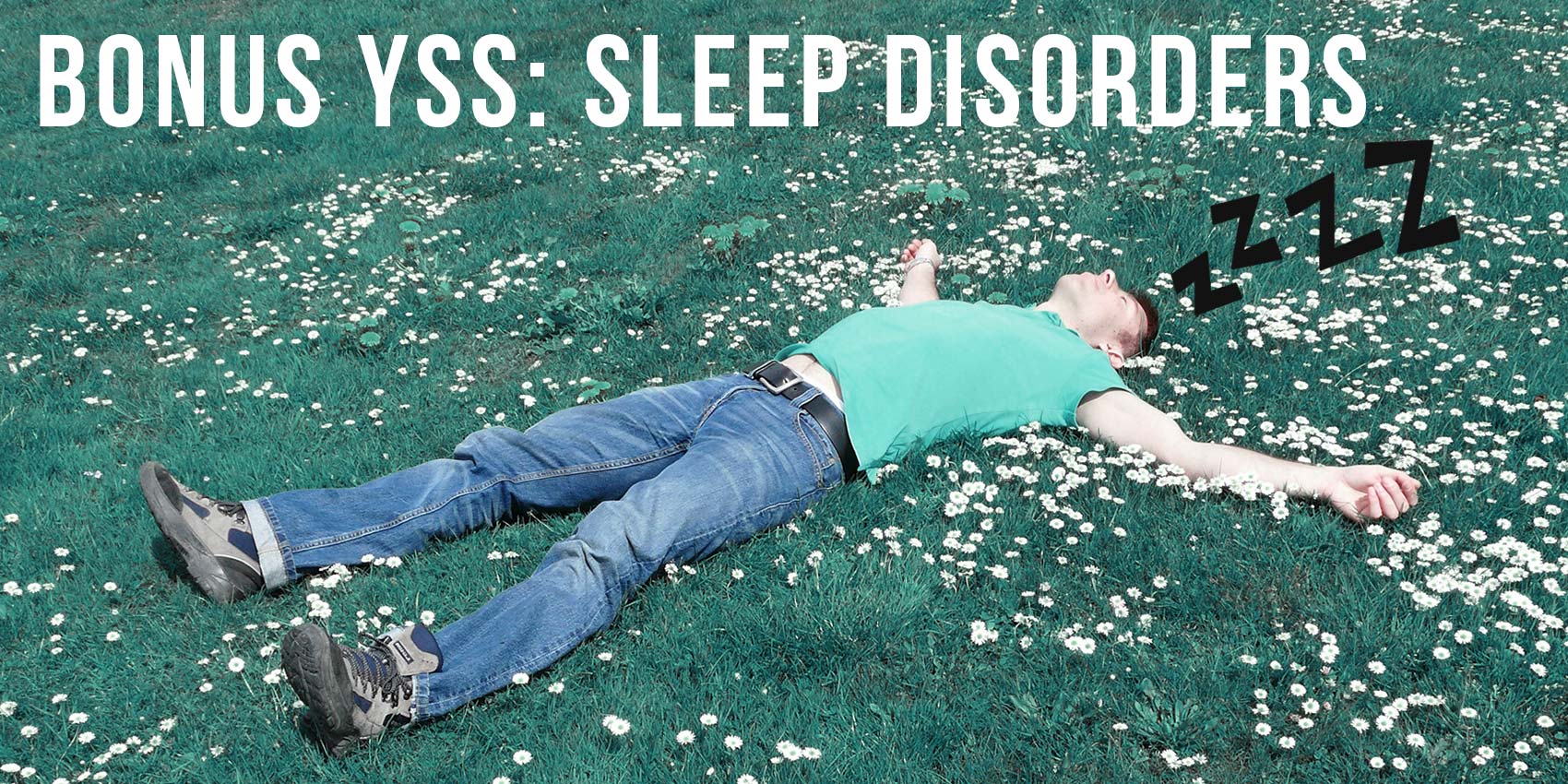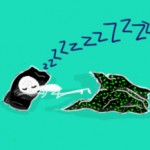10 Dec Bonus YSS: Sleep disorders

If you experience persistent problems associated with your sleeping patterns or you think you need help sleeping, you can always speak with a sleep professional. Accurate diagnosis—narcolepsy, insomnia, sleep apnea, snoring, limb movement—will help you find relief and start you on the path for a good night’s sleep. Usually though, teenagers don’t have problems getting to sleep, it’s waking up that’s a drag!
Insomnia is when you have trouble falling or staying asleep. The most common cause of insomnia is stress. What causes stress? That’s another post! But lots of things can lead to insomnia and it does happen from time to time but if you are experiencing these troubles more often than not, seek help.
Sometimes worrying about not being able to sleep contributes to the problem. It’s a good idea to just give into it when it happens irregularly and get up and read a book, do some stretches, try deep breathing to relax your mind and body and then get back into bed when you feel drowsy again. Don’t sit in your bed trying to wait it out: you don’t want your body getting used to being awake in bed.
Professionals who work with people suffering from insomnia suggest the following techniques:
- Create bedtime rituals (discussed in sub-post above)
- Reduce stress (please read the entire post dedicated to this topic)
- Deep breathe and focus on that breathing in order to not focus on other things that might create stress and keep you awake. Place your hands on your belly as you feel the rise and fall of your breath. This helps calm the mind and body.
- Keep a pen and paper by your bed. When you settle into bed and things pop into your mind (like remembering to bring in money for the bake sale, or to text a friend about a party), simply jot them down so you know you will remember in the morning. Then turn off the light and practice your deep breathing.
Nightmares are not a disorder but they can feel like it at times. All people have nightmares but frequent nightmares can not only disturb your sleep, they disturb your emotional well-being. What causes them? Why so strange or haunting? Usually stress or anxiety is the problem so seek some help with those issues by talking to a doctor or therapist. For more information on nightmares and dreams, visit the dreams post.
Narcolepsy, simply put, is when a person suddenly and uncontrollably falls asleep during the day. In fact, people who have narcolepsy fall into REM sleep almost immediately. As you have learned, REM sleep typically takes about 90 minutes to reach after having been through all the other stages of sleep and is when the body experiences paralysis (inability to move). Imagine what falling into REM sleep at any moment would be like: it would, to put it mildly, interfere with being able to lead a normal and productive life. Not only would you be a danger to yourself and others (think: falling asleep while driving or cooking) but you would also feel tired all day long, lack energy and enthusiasm and feel mentally cloudy. Treatment involves medication and lifestyle changes. [Source: webmd.com]

DID YOU KNOW? Some people with narcolepsy even have hallucinations or full body paralysis for a few moments.
Sleep apnea is a serious sleep disorder in which your breathing is disrupted: you literally stop breathing for a few seconds or even a few minutes! When you do start breathing again (beginning with a snort or choking sound), your sleep has been disrupted (even though you might not wake). As a result, sufferer’s do not get a good night’s sleep and don’t feel rested, even though they may have “slept” for 8 or 9 hours. So, if you snore and you feel tired all the time, tell your doctor. It’s important because if left untreated, it can lead to heart problems, memory loss and it greatly increases your risk of having an accident due to a poor night’s sleep. [Source: mayoclinic.com, http://www.nhlbi.nih.gov/health/health-topics/topics/sleepapnea/)
Restless Leg Syndrome (RLS) is an uncomfortable (or even painful) sensation in the legs that causes a person to need to move the legs to relieve the sensation. Paula has experienced this and though it sounds like no big deal, it is a big deal. It is irritating and very distracting from the objective: falling asleep! Luckily, Paula only had this for a few weeks (no idea why) and it went away. But for some, it can be quite debilitating. Some people feel like hands are grabbing and pulling at their legs. Creepy! It is unknown what causes it, and treatment can be tricky. An old wives tale is that a drink of tonic water will do the trick!




Answer the post question here
What's being said